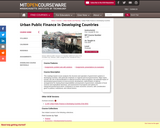30 Results

- Subject:
- Economics
- Material Type:
- Unit of Study
- Provider:
- Rice University
- Provider Set:
- OpenStax College

By the end of this section, you will be able to:
Use the aggregate demand/aggregate supply model to show periods of economic growth and recession
Explain how unemployment and inflation impact the aggregate demand/aggregate supply model
Evaluate the importance of the aggregate demand/aggregate supply model
- Subject:
- Mathematics
- Material Type:
- Module
- Date Added:
- 09/20/2018

In this chapter, you will learn about:
Macroeconomic Perspectives on Demand and Supply
Building a Model of Aggregate Demand and Aggregate Supply
Shifts in Aggregate Supply
Shifts in Aggregate Demand
How the AD/AS Model Incorporates Growth, Unemployment, and Inflation
Keynes’ Law and Say’s Law in the AD/AS Model
- Subject:
- Mathematics
- Material Type:
- Module
- Date Added:
- 09/20/2018

- Subject:
- Economics
- Material Type:
- Unit of Study
- Provider:
- Rice University
- Provider Set:
- OpenStax College

By the end of this section, you will be able to:
Explain the Phillips curve, noting its impact on the theories of Keynesian economics
Graph a Phillips curve
Identify factors that cause the instability of the Phillips curve
Analyze the Keynesian policy for reducing unemployment and inflation
- Subject:
- Mathematics
- Material Type:
- Module
- Date Added:
- 09/20/2018

With this free video resource, students will explore the economic way of thinking, and the role incentives play in all our lives through engaging Hollywood production style videos.
Educators can use MRU's videos in a variety of ways, to include “flipping” the classroom, as study aids, supplementary material, concept reinforcement, or even as a full course offering.
In MRU's Principles of Macroeconomics course, we’ll cover fundamental questions such as: Why do some countries grow rich while others remain poor? How important is a country’s banking system — and what happened during the recent financial crisis? How did Zimbabwe end up with an inflation rate that rose into the quadrillions?
We’ll also cover important topics like the Federal Reserve, monetary policy, fiscal policy, the Solow Growth Model, institutional analysis, the “economics of ideas,” and more.
------------------------------------
What is Marginal Revolution University (MRU)?
Many of us can remember our first great economics teacher who fundamentally changed how we see the world. At MRU, we try and deliver that experience to millions worldwide through video.
Founded as a nonprofit in 2012 by George Mason University economics professors Tyler Cowen and Alex Tabarrok, MRU is building the world’s largest online library of free economics education videos -- currently weighing in at more than 800 videos.
- Subject:
- Economics
- Social Science
- Material Type:
- Full Course
- Homework/Assignment
- Lecture
- Module
- Provider:
- Marginal Revolution University
- Author:
- Alex Tabarrok
- Tyler Cowen
- Date Added:
- 04/04/2019

Examines techniques and procedures relevant for project planning and implementation in developing countries, including project identification, feasibility analysis, design and implementation monitoring. Considers how to evaluate economic and distributive effects of completed or ongoing development projects. Specific attention given to how institutional setting and other practical influences affect the use of conventional analytical tools.
- Subject:
- Business and Communication
- Finance
- Material Type:
- Full Course
- Provider:
- M.I.T.
- Provider Set:
- M.I.T. OpenCourseWare
- Author:
- Kim, Annette Miae
- Date Added:
- 01/01/2005

This readings-based course analyzes the structure and operation of government systems in developing countries, with particular emphasis on regional and local governments. Major topics include: the role of decentralization in national economic reform programs; the potential impact of decentralized governments on local economic development; determination of optimal arrangements for sharing fiscal responsibilities among levels of government; evaluation of local revenue and expenditure decisions; and assessment of prospects and options for intergovernmental fiscal reform. Emphasis is on basic economic concerns, with consideration given to political, institutional, and cultural factors.
- Subject:
- Business and Communication
- Economics
- Finance
- Social Science
- Material Type:
- Full Course
- Provider:
- M.I.T.
- Provider Set:
- M.I.T. OpenCourseWare
- Author:
- Kim, Annette Miae
- Date Added:
- 01/01/2004

